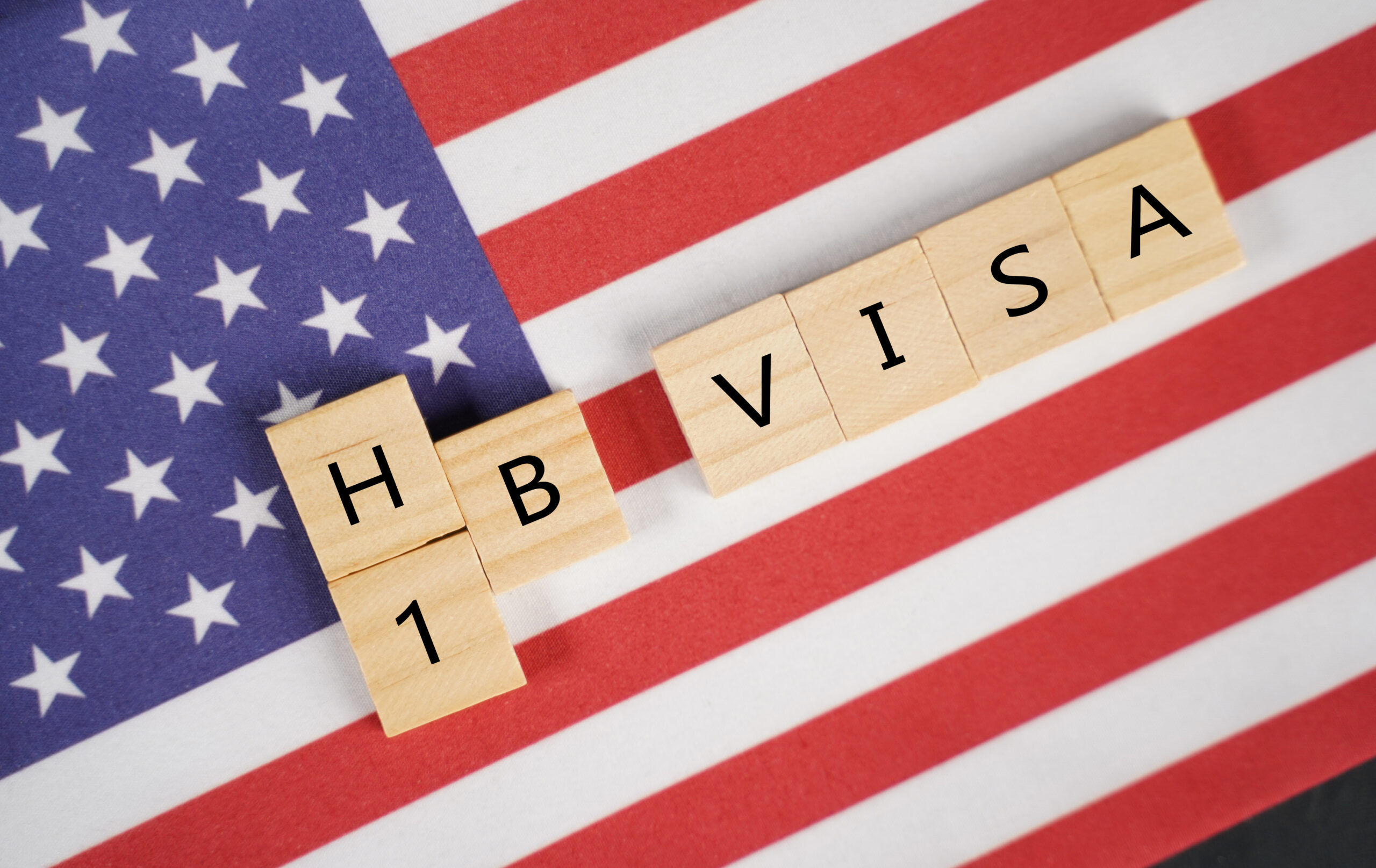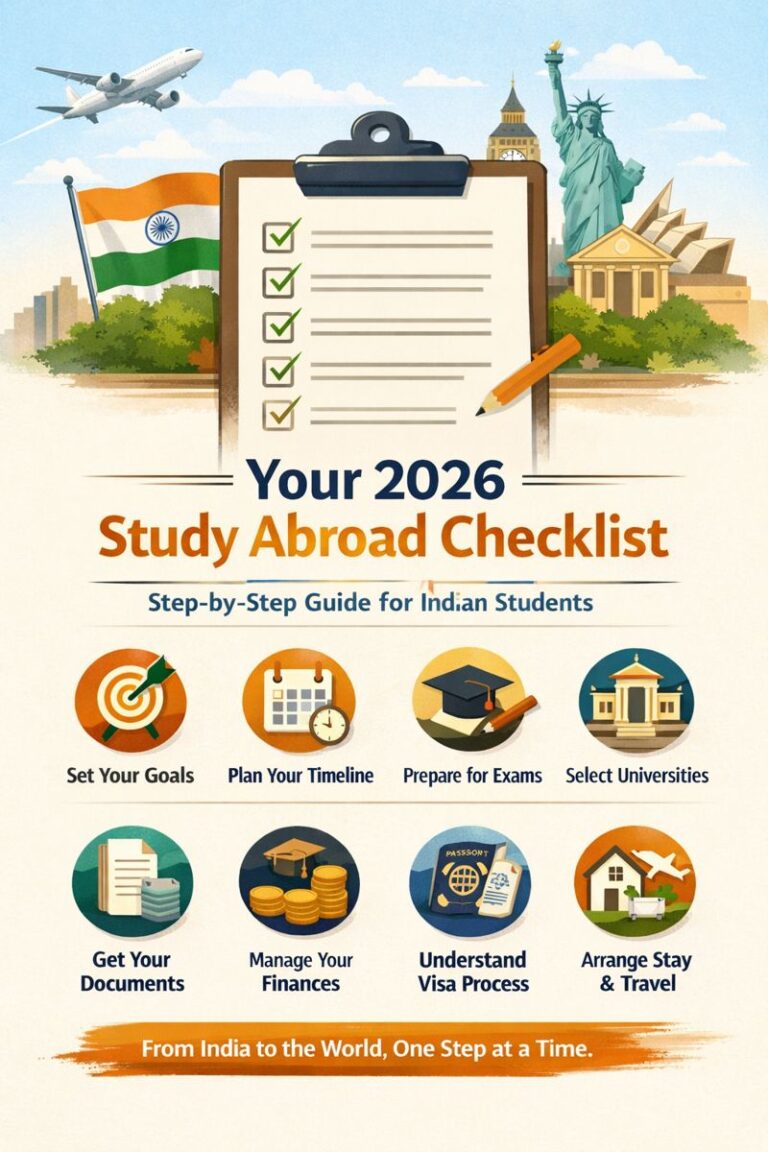Dreaming of a bright future in the U.S.?
The H-1B visa might be your fast track to it.
Here’s everything you need to know about the H-1B visa, the requirements, application process and more.
What is the H-1B visa?
H-1B is an employment-based, non-immigrant visa for specialist workers in the U.S.
The H-1B visa allows U.S.-based businesses to hire foreign nationals in specialist roles. Hence, the H-1B visa is one of the most popular ways to get eligibility to work in the U.S.
What makes this visa different from any other visa, is that the H-1B is an employer-sponsored visa. That means your employer must offer you a job and then petition for your H-1B visa with the US immigration department.
If the petition gets approved, you will get a work permit and a visa stamp to work for that specific employer.
What is the maximum number of H-1B visas issued per year?
Since the H-1B visa was introduced in 1990, there has been a cap on the maximum number of H-1B visas issued every year.
Currently, the statutory cap is 65,000 H-1B visas for each fiscal year. But there are an additional 20,000 visas allotted for foreigners who have graduated with a master’s or doctorate degree from a U.S. university.
This makes it much easier for Indian students with a master’s degree / PhD from a U.S. university to get an H-1B visa. So consider pursuing a master’s program in an American university to fast track your chances of getting the visa (and better job opportunities)!
Since currently there is massive competition for the H-1B visa, the USCIS randomly selects H1b awardees by way of a lottery system. So those with pre-registered applications, who have completed the H-1B registration accurately, are included in the lottery selection every year.
The full-fledged paperwork for the actual visa application is filed, only after the lottery selection is done.
What does the H1B visa allow you to do in the U.S.?
H-1B visa allows visa holders a great degree of freedom in America. As an H-1B visa holder, you will be allowed to:
● Work full-time for the petitioning U.S. employer
● Work for more than one U.S. employer (but you must have a Form I-129 petition approved by each employer you work for)
● Enter and exit the U.S. any number of times, with no restriction, as long as the visa is valid (It is a multiple entry visa) go on vacation, sick/maternity/paternity leave, and go on strike.
● Bring your spouse and unmarried children (under 21 years of age) to the U.S. as non- immigrant, dependants, under the H4 category visa.
But, remember this visa is valid only as long as you are associated with a petitioning U.S. employer.
H-1B visa eligibility criteria: Who is eligible for H-1B visa?
The H-1B visa is also called a Person in Specialty Occupation Visa. So apart from being an employment-based visa, it also requires that the visa holder be filling a specialty role.
The H-1B visa is issued only for specialists and requires you to have theoretical and practical skills in a specialized field.
The U.S.-based employer must be able to justify the need for this foreign employee, by proving that the task cannot be accomplished by a U.S. citizen. (This may be because U.S. citizens might be unavailable or unqualified academically or professionally.)
To do this, the employer must receive applications from various candidates and must be able to show that the requirements for the job are best fulfilled by the foreign employee.
Now apart from the employer’s side of the story, you must also meet certain requirements to be eligible for an H-1B application.
First, you must be employed in a specialist role, by a U.S.-based employer that has an approved Labor Conditions Application (LCA).
Examples of some specialist roles include:
● IT specialists
● Architects
● Accountants
● University professors
● Doctors or healthcare workers
● Financial analysts
● Management consultants
● Lawyers, etc.
Apart from that, you must show exceptional qualifications for that specialist role.
This can include the possession of:
● A 4-year bachelor’s degree (or equivalent degrees)
● A master’s degree or doctoral degree
● Advanced training or vocational skills
Now you are eligible for the visa, if:
● you are currently residing in another country, but have gotten an offer of employment from a U.S.-based employer.
● you are an international student on a student visa / F1 visa studying in the U.S. (You can apply for the H-1B visa either after graduation from an American university, or during OPT.)
H-1B visa requirements: What documents do you need to apply for an H-1B visa?
To apply for the H-1B visa you will need the following primary documents:
● I-129 Petition: This form is used by your American employer to petition the U.S. Citizenship and Immigration Services (USCIS) for you to temporarily come to the U.S. as a non-immigrant to perform services or labor.)
● Approved Labor Condition Application (LCA) from the Department of Labor: This certifies that the U.S.-based employer is allowed to hire foreign workers. It also states that the employer will offer them fair compensation and treatment.
Also submit supporting evidence, including documents like:
● A copy of your CV/resume
● A copy of the job offer (including your job role description)
● Proof of your educational qualification (+ credential evaluation, if needed)
● Your current passport + all previous passports
● A photograph of you which meets the ‘Digital Image Requirements’
● Receipts of fees payment
If you have lived or worked before in the US, then you will also need to submit:
● Current U.S. address
● Foreign address
● Social security number
● Day and evening phone numbers
● E-mail address
● Your tax return forms
● Names (and contact numbers) of your previous U.S. employers and supervisors (if any), Payslips for the past 12 months
What is the H-1B visa registration process like?
Before the formal H-1B visa application process starts, the lottery takes place.
To throw your hat in the ring for that, the initial USCIS H-1B Electronic Registration opens on March 9th, at 12:00 PM (Eastern Time). And it ends at on March 25th, at 12:00 PM (Eastern Time). The lottery winners will be notified by March 31st.
To be eligible for this lottery, the petitioning company (your employer) will need to create an account at on the USCIS website. The account must be made in the name of the person who will be signing your I-129 and G-28 forms.
Care must be taken to select the correct account type to ensure the pre-application isn’t disqualified.
There are three main types of USCIS accounts:
● Applicant/petitioner/requestor account: Cannot be used to submit H-1B applications. This is used to prepare and file applications, petitions, or other benefit requests.
● Attorney / representative account: This account is selected by the attorney or accredited representative will be submitting the H-1B registrations on behalf of the employer.
● Registrant account: This is the account that a prospective petitioner (your employer) must create for the H-1B registration process. (Even if they are going to be using an attorney or accredited representative to submit the registration.)
After this, if you are selected among the lucky few lottery winner, then you will have to follow the next steps:
● Fill in the Form DS-160. This is the most important part of the application, so follow all instructions carefully and provide accurate information.
● Schedule an interview with the U.S. embassy. You should try to schedule this interview as early as possible, to ensure you get a slot on time.
● Pay the H-1B visa application fees or $190.
● Ensure all the required documents for the H-1B visa application are submitted in order.
● Prepare for and attend the H-1B visa interview.
Pro tip: During the interview, you should have all your documents in place, and be prepared to answer detailed questions about your workplace and job role.
Where does the H-1B visa petition need to be submitted?
The petition can be submitted to the USCIS in one of its four main locations in the U.S.:
● Nebraska Service Center (LIN, Lincoln, Nebraska)
● Vermont Service Center (EAC, Eastern Adjudication Center)
● Texas Service Center (SRC, Southern Regional Center)
● California Service Center (WAC, Western Adjudication Center)
Your employer will submit the petition at the closest USCIS service centre.
Once USCIS receives the petition, they will issue you a unique case number. You can then use this case number to check your petition status.
H1B visa fees: How much does an H1B visa cost?
Apart from the $190 for the H1B application at the embassy, there are additional fees that need to be paid for an H-1B visa. Most of these fees are paid by the employer, except for the ones that specify otherwise.
Fees involved in the H-1B visa application process include:
● Registration fee: $10
● Basic filing fee (form I-129): $460
● USCIS anti-fraud fee: $500
● For companies with 25 or fewer employees: $750
● For companies with more than 25 employees: $1,500
● For companies with more than 50 employees, where 50% of them are on H1B or L visas: $2,250 (to be paid by employee)
● Premium Processing Fee*: $2,500 (optional, can be paid by either employee or employer)
● Public Law 114-113 fee: $4000
● Visa issuance fee: depends on the embassy/location (optional, can be paid by either employee or employer)
*For the Premium Processing Fee, either the petitioner (your employer) or the beneficiary (you) may pay. This premium service allows the H-1B visa to be filed and approved in just 15 days.
How long is an H-1B visa valid for?
The H-1B visa allows you to stay and work full-time in the U.S. for a period of 3 years. After this, you can apply to extend your visa for another 3 years, making it a total of 6 years.
But, your total stay in the U.S. under the H-1B visa cannot exceed a total of 6 years.


















